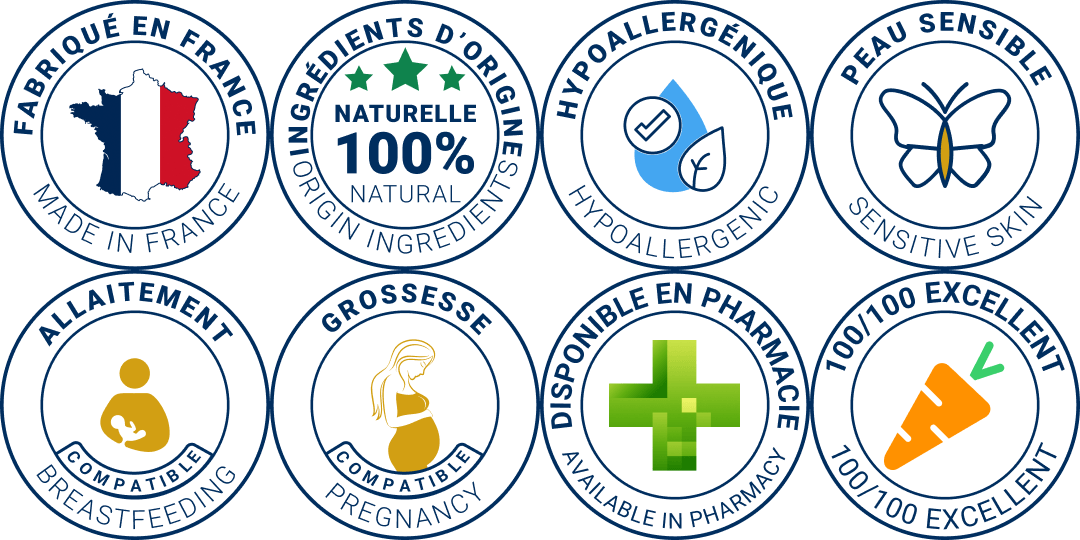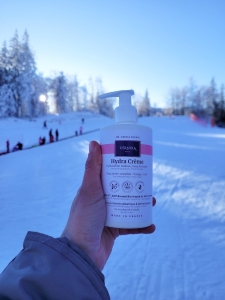Reading Time: mins
Known as a severe manifestation of rosacea, rhinophyma intrigues and concerns due to its distinctive appearance and psychosocial implications. At the heart of Vernixa’s commitment to natural, respectful skin care is a deep understanding of the challenges posed by conditions such as rhinophyma. This article aims to unravel the complexities of this skin condition, offering an overview of causes, symptoms and treatments, while highlighting Vernixa’s caring and innovative approach to the care of sensitive skin, from infancy to adulthood.
Rhinophyma is often perceived by society as a simple aesthetic issue, but people living with the condition face far deeper challenges, including stigma and emotional difficulties. By exploring not only the medical aspects but also the psychological impacts of rhinophyma, this article aims to promote greater awareness and sympathy for those struggling with this little-understood affliction.
Rhinophyma is an advanced and severe phase of rosacea, characterized by excessive growth of skin tissue on the nose. This leads to a significant increase in the size of the nose, thickening of the skin, and persistent redness. Primarily affecting older men, rhinophyma can have a significant impact on a person’s self-esteem and emotional well-being. This complex condition requires constant clarification of symptoms, highlighting the importance of early identification and appropriate treatment and support.
The thickening of the skin and redness that characterize rhinophyma can sometimes lead to misunderstandings about its nature and treatment. It’s a condition that requires special attention, not only for its physical implications but also for the psychological difficulties it can engender. In so doing, this article highlights the importance of an empathetic and informed approach to the treatment and management of rhinophyma.
The causes of rhinophyma remain widely debated in the medical community, although it is thought to result from a combination of genetic, environmental and possibly lifestyle factors. The link between rosacea and rhinophyma indicates that those suffering from rosacea, particularly severe forms, are at increased risk of developing rhinophyma symptoms. Known rosacea triggers, such as sun exposure, extreme temperatures and stress, could also play a role in exacerbating rhinophyma.
Hormonal fluctuations and certain diets are also thought to aggravate rosacea and, by extension, rhinophyma. This understanding underlines the importance of a holistic approach to rosacea treatment, focusing on lifestyle modification, patient education, and the use of adapted, gentle skin care products to minimize the risk of aggravation.
Treating rhinophyma requires a personalized strategy, tailored to individual needs and the severity of the condition. While options vary from topical application to surgery, surgical intervention is often considered the most effective treatment for advanced cases. Surgery aims to reshape the nose, reducing excessive tissue mass and improving aesthetics, thus contributing to a better quality of life.
Dermabrasion and laser treatment are other treatment options, offering a less invasive approach to managing rhinophyma symptoms. These methods can help smooth skin texture and reduce redness, providing a visible improvement in the appearance of affected skin. Vernixa’s commitment to offering sensitive, natural skincare solutions plays a crucial role in supporting people with rhinophyma, promoting skin health and well-being at every level.
Prevention plays a key role in the management of rosacea and, consequently, in reducing the risk of rhinophyma development. Vernixa encourages the adoption of well-established skincare routines, stressing the importance of using products specially formulated for sensitive skin. These routines should include adequate sun protection, regular skin hydration, and avoidance of known rosacea triggers.
While rhinophyma remains a challenging condition to manage, a thorough understanding of the causes, symptoms, and treatment options can greatly improve the experience of individuals living with the condition. Vernixa remains at the forefront of skin care innovation, offering gentle and effective solutions for people with sensitive skin, and will continue to enlighten and support its community in the management of complex skin conditions such as rhinophyma.
We encourage our readers to discover the Vernixa range of products designed specifically for sensitive skin, and to share their experiences with our community. Together, we can promote better understanding and proactive management of rosacea and rhinophyma, ensuring a healthier, more fulfilling life for those affected by these skin conditions.


All Rights Reserved | Tous Droits Réservés GTIN Compliance Hydra Lavant | GTIN Compliance Hydra Crème



